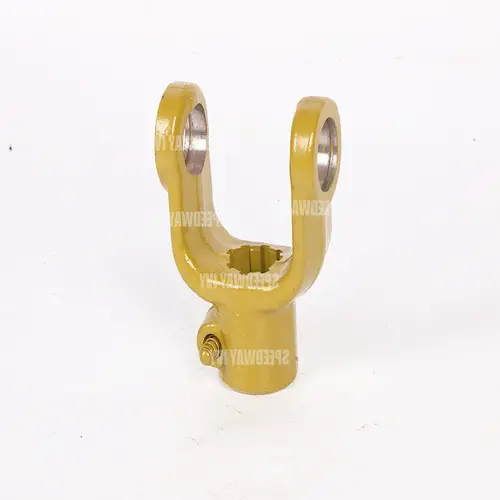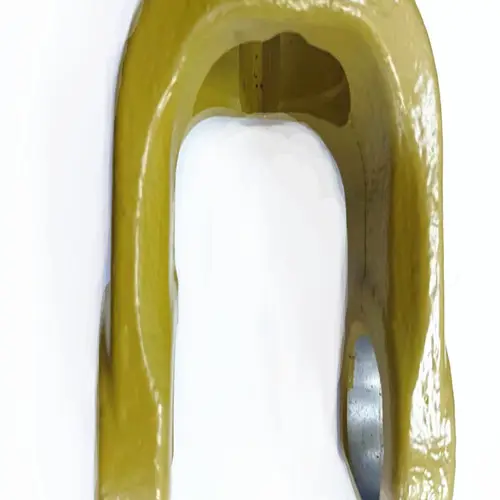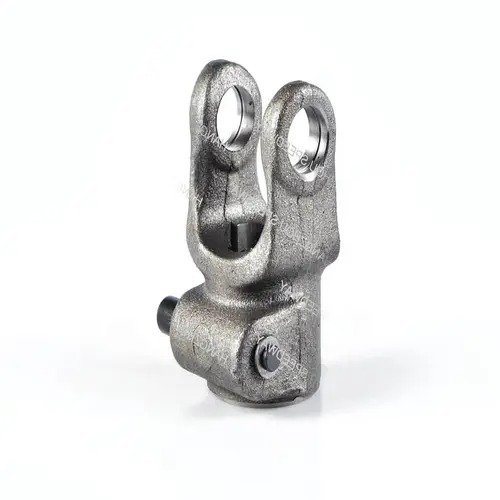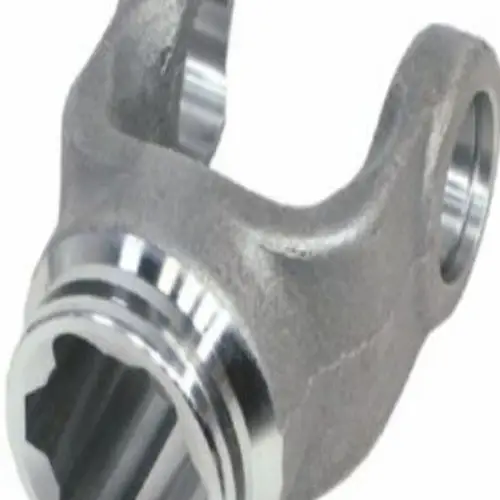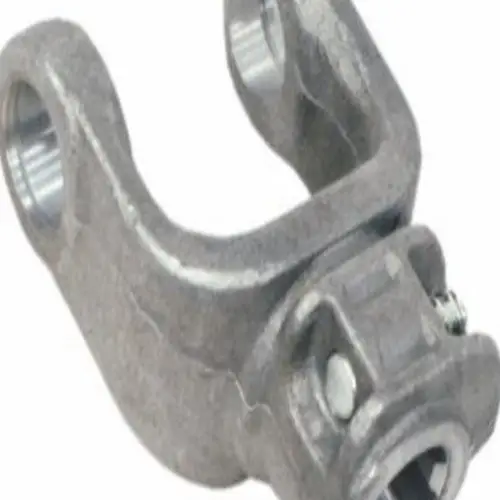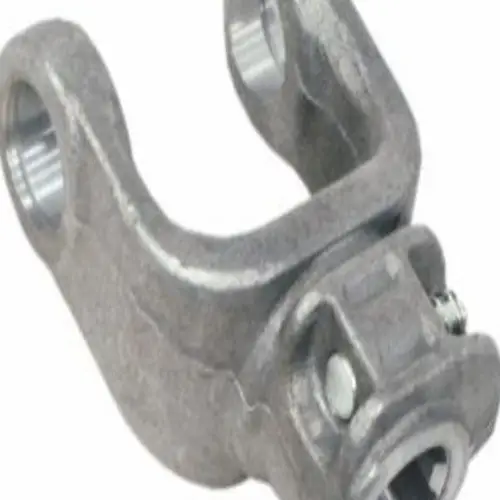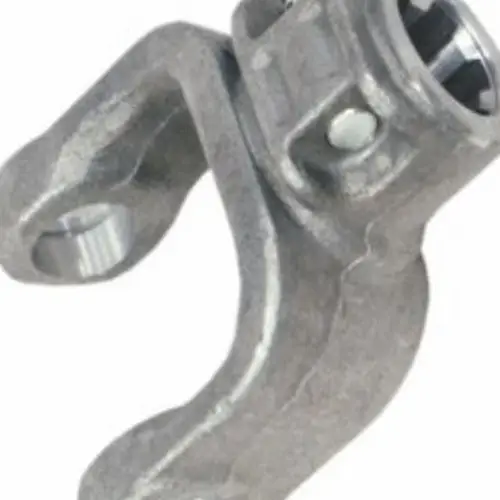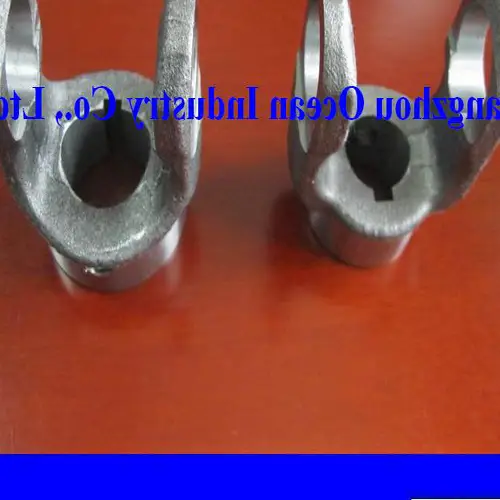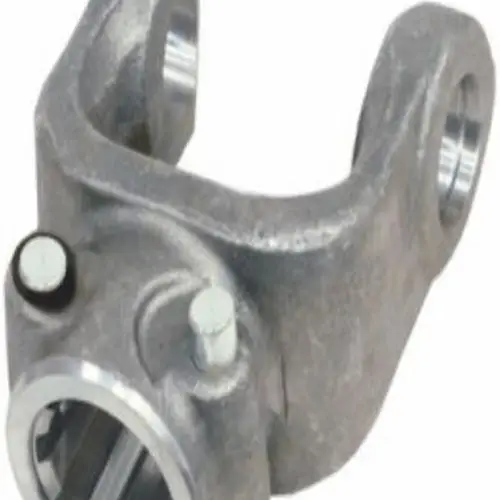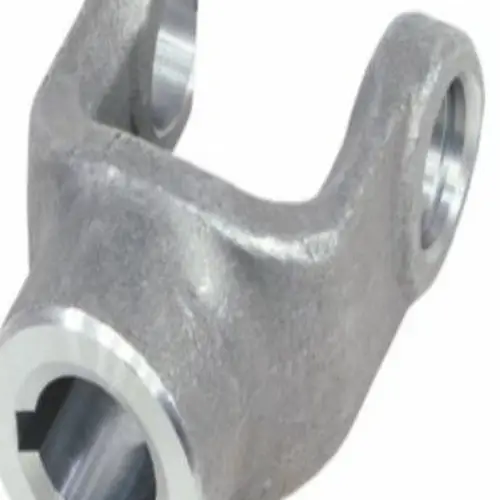
China Factory Plain Bore Yoke Keyway for PTO Shaft – Superior Design & Quality
Product Description
Plain Bore Yoke Keyway for PTO Shaft with Factory Made Standard Design
Our Plain Bore Yoke Keyway is engineered to perfection, combining robust construction with precision design. Ideal for pairing with another yoke via a centering kit, this product ensures a flawless universal joint.
- Single yoke for pairing with another yoke using a centering kit to make a universal joint
- Forged steel construction ensures unmatched strength and longevity
- Designed for assembly with UJSC center kit
- Equipped with keyway and set screws for secure attachment to the shaft
Advantages Over Similar Products
When compared to similar products from China, our Plain Bore Yoke Keyway possesses several distinct advantages:
- Forged Yokes: Enhance the strength and reliability of PTO shafts.
- Standard Internal Sizes: Ensure smooth and hassle-free installation.
- Certified Quality: CE and ISO certifications guarantee the quality of our products.
- Professional Packaging: Ensures the product arrives in pristine condition.
Product Specifications
Our Plain Bore Yoke Keyway comes with specific details tailored to meet your requirements. Please contact us for a customized specification sheet.
Packaging & Shipping
We utilize strong and professional packaging methods to ensure that you receive your goods in perfect condition. Our shipping options are reliable and efficient to meet your needs.
Other Products
EVER-POWER GROUP is your go-to source for an extensive array of industrial products. Our product line includes:
- Agricultural Gearboxes
- Power Output Shafts
- Sprockets
- Fluid Couplings
- Worm Gear Reducers
- Gears and Racks
- Roller Chains
- Pulleys and Belts
- Planetary Gearboxes
- Timing Pulleys
- Bushings
We pride ourselves on offering high-quality products at competitive prices, backed by exceptional customer service. We welcome custom orders and can produce according to your drawings and samples.
FAQs
1. Can you provide a price list?
Since our products are customized based on specific requirements such as length, ratio, voltage, and power, providing a standard price list is challenging. Please share your detailed requirements and annual quantity for a tailored offer.
2. What is the lead time for a regular order?
Generally, our standard products require 30-45 days, with slightly longer lead times for customized orders. We are flexible and can adjust based on specific order details.
3. What warranty terms do you offer?
We offer a one-year warranty on our products.
4. How do you ensure the quality of your products?
Our products are manufactured following stringent quality standards and are CE and ISO certified, ensuring you receive only the best.
5. Can you handle custom orders based on specific drawings and samples?
Yes, we welcome custom orders and can produce products based on your provided drawings and samples.
All the content of the page is from the Internet, the content is only as a reference for product selection, our products are replacement parts and not original spare parts; we are not the holder of the original trademarks of the content, our products are only suitable for after-sales replacement parts and not original spare parts, our replacement parts can be perfectly adapted to the original spare parts; if you need to buy original spare parts, please contact the original factory to buy. If you want to buy original spare parts, please contact the original supplier for purchase.
Performance Characteristics of PTO Shaft Yoke
The PTO shaft yoke, an integral component in power transmission systems, exhibits several key performance characteristics:
- Durability: Constructed to withstand high levels of stress and strain, ensuring a long operational life.
- Flexibility: Allows for smooth power transfer between misaligned shafts, accommodating various angles.
- Compatibility: Engineered to suit a wide range of PTO shaft sizes and configurations.
- Maintenance Ease: Designed for easy assembly and disassembly, facilitating straightforward maintenance procedures.
- Load Capacity: Capable of handling significant torque and rotational forces without compromising performance.
Types and Characteristics of PTO Shaft Yoke
PTO shaft yokes come in several varieties, each with its own unique characteristics:
- Standard Yokes: Ideal for general-purpose applications, offering a balance between strength and flexibility.
- Heavy-Duty Yokes: Built for high-stress applications, featuring reinforced materials and construction.
- Quick-Disconnect Yokes: Facilitates rapid attachment and removal, enhancing operational efficiency.
- Telescoping Yokes: Allows for length adjustments, providing versatility in various applications.
Advantages of PTO Shaft Yoke Materials
The material composition of a PTO shaft yoke significantly influences its performance. Common materials include:
- Steel: Offers exceptional strength and durability, ideal for high-load applications.
- Aluminum: Provides a lightweight alternative, reducing overall system weight without sacrificing performance.
- Composite Materials: Combines the benefits of multiple materials, offering superior strength-to-weight ratios and corrosion resistance.
Application of PTO Shaft Yoke in Various Fields
PTO shaft yokes are utilized across diverse industries, each highlighting their value and importance:
- Agricultural Machinery: Essential for powering implements such as mowers, balers, and tillers.
- Construction Equipment: Powers machinery like excavators and loaders, contributing to efficient operation.
- Industrial Equipment: Facilitates the functioning of conveyor belts, mixers, and other heavy-duty machinery.
- Marine Equipment: Transmits power to propellers and winches, ensuring smooth operations at sea.
- Forestry Equipment: Powers saws, chippers, and other forestry tools, enhancing productivity.
Future Development Trends and Opportunities for PTO Shaft Yoke
The PTO shaft yoke market is poised for significant growth, driven by technological advancements and increased demand. Future trends include:
- Smart Yokes: Integration of sensors for real-time monitoring and predictive maintenance.
- Enhanced Materials: Development of advanced composites for improved performance and longevity.
- Customization: Increased availability of bespoke solutions tailored to specific application needs.
Choosing a Suitable PTO Shaft Yoke
Selecting the right PTO shaft yoke involves several critical considerations:
- Determine Application Requirements: Understand the specific needs of your machinery and operational environment.
- Evaluate Connection Type: Ensure compatibility with your existing equipment.
- Check Power and Torque Requirements: Select a yoke capable of handling the power output of your machinery.
- Choose the Right Material: Consider the operational demands and select a material that offers the best performance.
- Axis Length and Dimensions: Ensure the yoke fits within the spatial constraints of your system.
- Security Function: Opt for yokes with safety features to prevent accidents and ensure reliable operation.
Summary
In conclusion, the PTO shaft yoke is a vital component in various mechanical systems, offering durability, flexibility, and ease of maintenance. Its diverse applications across agricultural, construction, industrial, marine, and forestry equipment underscore its importance. As technology evolves, the future of PTO shaft yokes looks promising, with opportunities for enhanced performance and customization. Selecting the right yoke requires careful consideration of application requirements, connection types, power and torque needs, material choice, dimensions, and safety features. By making informed decisions, you can ensure optimal performance and longevity of your machinery.
Author: Dream
